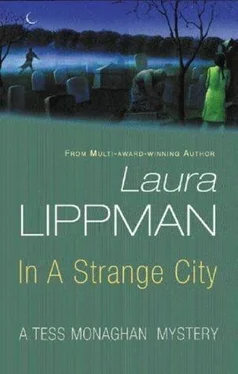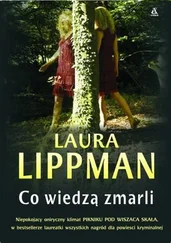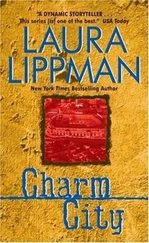“Oh, yes, you’ve been portrayed in press accounts as squeaky clean, but as I understand the traditional media arc, it’s about time for you to get some negative publicity. They build you up so they can tear you down. Read more about Mr. Poe’s posthumous life if you want to see a case study in the vagaries of public opinion. The Beacon-Light might not bite, but the local television stations would love a piece on sleazy private eyes. You and Gretchen O’Brien. They say it takes three to make a trend, but maybe they can throw in the historic example of Allan Pinkerton, the original Baltimore PI, whose inability to track the Army of the Confederacy probably extended the Civil War by several years.”
The long rapid speech had left Pitts breathlessly delighted with his own moxie. Tess felt a little breathless, too, at how he had turned the tables on her. The only knowledge she had gained here was that the fat man was shrewder than he appeared. He had chosen her because he knew her family history left her vulnerable to being manipulated in just this fashion. He had gone shopping for a private investigator he could control. She wondered what he had on Gretchen. It didn’t matter. He had just been handed a nifty piece of blackmail: Gretchen had defrauded him by collecting money for work she never did. She, too, was now hopelessly compromised, vulnerable to Arnold Pitts’s dictates.
“I think,” Pitts said, when she declined to say anything, “this is what they call a Mexican standoff. You’re not telling me anything; I’m not telling you anything.”
“But I know where you live now,” Tess said. “I know who you are. I might come back.”
“Good night,” he said. “Good-bye.” It was an order.
She looked around the low-ceilinged room. The floors that peeked out from the edges of Pitts’s green carpets were wide-planked pine. The ceiling had exposed beams, and the walls were a rough plaster that probably fought every nail. It was a little gem of a house, built better than it needed to be, and crying out for simple furnishings. Pitts’s re-creations verged on vandalism.
“Why would you buy a house like this and fill it with fifties kitsch?” Tess asked. “What’s the point?”
“Kitsch? Kitsch? These are my memories. This is my life.” Pitts, so cool and calm when he was threatening her, became completely rattled when his taste in furnishings was questioned.
“I’m sorry, I didn’t mean to suggest it isn’t… breathtaking in its attention to detail. But why here? Why not in a nice little split-level out in Lutherville? Don’t you want to create the full effect?”
“But I have,” he said with genuine bewilderment. “Besides, Mother still lives in the house in Cockeysville. And she’s done horrible things to it. Why, she actually got one of those refrigerators with an icemaker in the door.” He shuddered. “The old refrigerators are so beautiful, with their rounded tops and those huge handles, as if what you were opening was something important. One day, when she dies-”
Tess left it-and him-there. It was reassuring to know Mother Pitts was in the suburb of Cockeysville, not stuffed in a nearby crawl space.
Then again, she recalled when she was back in her car, Norman Bates also had insisted his mother was alive.
Crow had a yen for French toast the next morning, so they ended up at the Paper Moon Diner, a twenty-four-hour oasis near the Baltimore Museum of Art. It had once been a dreary coffee shop, the Open House, a place so bad that Tess kept returning to see if it could possibly be as awful as she remembered. It was. The Open House had been a place where the jelly on your English muffin turned out to be mostly mold and whatever white substance they provided for the coffee was invariably curdled. If anyone dared to complain, the help glared, put out to find customers there.
But with a little purple paint and a heavy dose of whimsy, the Paper Moon had vanquished the ptomaine ghosts of the previous regime. The place now radiated good cheer, with its collection of Pez containers and old-fashioned toys. Christmas lights shone from the exposed rafters year-round, and naked department store mannequins lurked in the shrubbery out front. The service was also divine, thanks to what Crow referred to as the only successful model for socialism in the new millennium: All tips were shared, so everyone on the staff had a vested interest in getting the food to the table and keeping drinks refilled. The menu needed an entire page to explain this system, and the explanation verged on manifesto, but the Paper Moon always made Tess feel as if she were John Reed in the Soviet Union: She had seen the future of restaurant service, and it worked.
“I’m sorry I got you into this,” Crow said, yawning over his coffee. They had stayed up late the night before, until almost 3 a.m. It had been worth it.
“I like the Paper Moon.”
“No, I mean this Poe thing. It’s all my fault.”
“How do you figure?”
“If I hadn’t insisted we go to Westminster and ”protect‘ the Visitor, you wouldn’t have felt obligated to start looking for this man. Now that you’ve found him…“
“Now that I’ve found him,” Tess sang, “I can let him go.” The Paper Moon’s whimsy was infectious. Besides, she didn’t want to talk about Arnold Pitts. She wanted to prolong the warm, happy mood in which she had awakened. Later, stomach full, she would contemplate Pitts’s nasty threat, try to figure out if he had left her any room in which to maneuver. Could she launch a preemptive strike, go to Rainer and tell him to expect Pitts’s false accusations?
But Pitts was shrewd in his judgments: Rainer disliked her so much, he’d want to believe the worst of her. She was stuck. She studied the menu, wondering if it was too early in the day to order the hummus, which was billed, perhaps inevitably in this self-referential city, as “Hummuside: Life on the Pita.”
Puns ruined her appetite. Perhaps an omelet instead.
“You know, one day-not at breakfast, but if we come here for lunch or dinner-I’m going to order a beer milkshake. If any place on the planet would make you one, it would be the Paper Moon.”
“Wasn’t there a character in a book who had a beer milkshake?”
“Doc, in Cannery Row,” Tess replied, glad to know a piece of literary trivia. She was still embarrassed at being the butt of Arnold Pitts’s literary joke. The twentieth, now that was her century If someone had come into her office claiming to be Edmund “Bunny” Wilson or Harold Bloom, she’d have been in on the joke from the jump.
Two women walked into the dining room and took seats beneath a mobile of flying Barbies. Tess couldn’t help noticing the dark and light heads bent over the menus. Both women had short razor-cut hair, which exposed willowy necks. If it weren’t for their coloring-the one so dark, the other a rose-petal blonde- they might have been mistaken for sisters. There was a sameness in the way they dressed, in their posture. Tess was so caught up in trying to figure out how they could look so different and yet seem so related, that it took a second for the dark-haired woman’s familiar profile to register.
“Cecilia Cesnik,” she said, for the second time in three days.
And for the second time in three days, Cecilia turned and gave Tess a wary smile.
“Now I remember why the City Paper suggested Tiny Town as a nickname for Baltimore,” Cecilia said. “Sometimes it seems as if there are only a couple dozen people living here.”
The blonde’s blue-green eyes had a frosty glaze that would have done a doughnut proud. Tess realized she must be Cecilia’s girlfriend, and she was trying to assess the nature of the relationship between Cecilia and this strange woman.
Читать дальше












